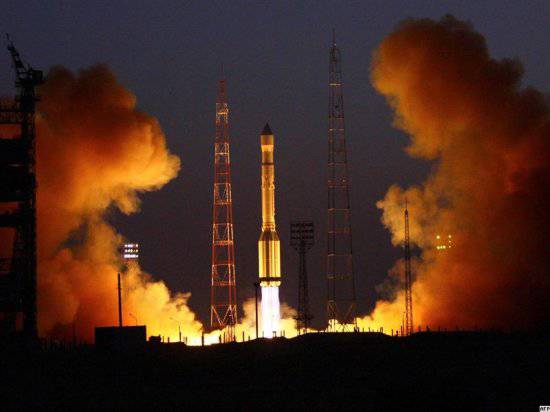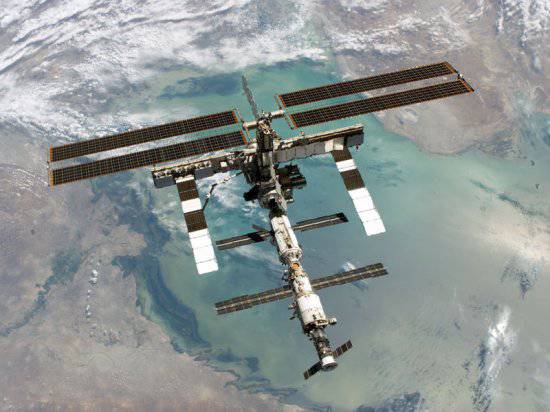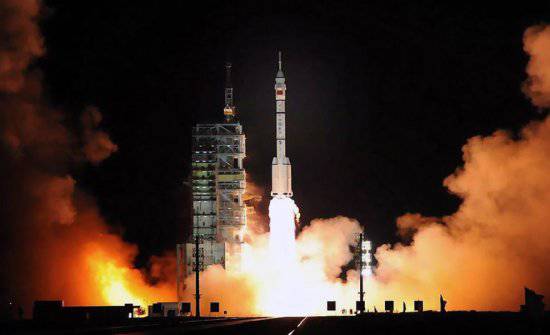Russia plans to regain lost ground in space exploration
In its desire to get closer to the level of the United States in the field of space exploration, Russia is ready to take decisive measures and significantly accelerate the missions to the Moon and Mars planned for later periods. According to data received from Roskosmos, it became known that Russia plans to conduct the first manned flights to the Moon by the end of this decade, and by 2030, according to new plans, the base will be established on the Moon. The first man will go to Mars no earlier than 2040 of the year, but this is also much earlier than planned.
In a telephone interview with the head of the Russian Space Agency (Roskosmos), Anatoly Perminov, stated the following: “At the moment, the government has provided us with decent funding. The agency's budget for the current 2011 year was 3,5 billion dollars, which is more than three times more than the most successful 2007 year and a completely record amount since the collapse of the USSR in 1991 year. Given all this, we can gradually move forward on all issues. ”
At the moment, the main goal of Russia in the development of space programs is the commercial, technological and scientific aspects of space travel in the near future. During Soviet times, the main goal of the development of space programs was a geopolitical victory over the United States in the Cold War. In particular, President Dmitry Medvedev calls the space industry one of five areas, thanks to which the Russian government plans to help the country’s economy to move away from the unsightly status of the world leader in the supply of energy resources and to stop focusing on their production.
“We are significantly increasing the budget for the development of space programs, since the time has come for a real technological breakthrough,” said Dmitry Peskov, the spokesman for Prime Minister Vladimir Putin. “We need to replace the outdated infrastructure and continue to actively maintain our leadership status in the field of space development.”
Continuing cooperation on the space station
Early on Tuesday, the Russian spacecraft Soyuz TMA-21, with three cosmonauts, launched from the international cosmodrome Baikonur in Kazakhstan. This launch of the spacecraft to the International Space Station has become a jubilee, as already on April 12, Russia will celebrate the 50 anniversary of the Yury Gagarin space flight. On board the spacecraft are Andrei Borisenko and Alexander Samokutyaev from Roskosmos and NASA representative Ron Garan. (Ron Garan). Already 7 April, they arrived at the station, indicated on the website of Roskosmos.
Cooperation between Russia and the United States on the ISS continues and is likely to continue in the future. First of all, the Americans are interested in cooperation, for whom, after the decision to complete the Space Shuttle program, which has been operating for more than 30 years, is taken, this remains the only way to deliver American astronauts to the station.
US money
It is known that for sending American astronauts to the ISS up to the end of 2015, Russia will earn as payment from the US 752 a million dollars. Considering the number of planned flights, the cost of sending one cosmonaut to orbit is 63 million dollars, and, according to Perminov, these significant funds will be spent on engineering, maintenance and upgrades.
Back in February of last year, US President Barack Obama announced the completion of NASA's “Constellation” program, which was developed under the supervision of the administration of President George W. Bush, new spacecraft and launch vehicles would have to be built before 2020 under this program. . This decision was sharply criticized by astronauts participating in past missions and official representatives of NASA, including the former head of the agency and the first man who stepped onto the moon, Neil Armstrong. According to him, such a decision will withdraw the existing US program on space exploration from the international game. Without a manned spacecraft prepared for launch, planned and normal orbital launches to near-Earth orbit should be given to execution by established private companies.
China's plans for space exploration
China, which made its first and truly successful manned launch of the Shenchzhou spacecraft in 2003, plans to install a special capsule on the lunar surface in 2013 and to prepare and develop technology for the manned mission to be performed by 2020. This 3 March in Beijing, said Xu Shijie, a member of the People's Advisory Political Council of China.
Last year for the Russian space industry has become one of the most difficult. The greatest failure can be called the fact that the Proton-M launch vehicle could not deliver three navigation GLONAS satellites, a competitor of the GPS system operating in the United States, to space orbit. Due to the loss of satellites, Dmitry Medvedev dismissed Viktor Remishevsky, deputy. Roscosmos chairman, and Vyacheslav Filin, deputy. RKK Energia’s head of production of space rockets, in addition to this, the president reprimand Perminov.
“Russia needs a flight to Mars, it will not only spur technology, but also take them to a whole new level,” said Yuri Karash, a full member of the Russian Academy of Cosmonautics, “a manned Mars flight for Russia means that new upgraded launch vehicles will appear, new advanced engines, completely new anti-radiation drugs that will be able to protect people during their stay in outer space. "
Mission to Mars
According to Karash, if the mission to fly to Mars is included in the current federal space program, it can be said with confidence that this mission will be realized in 12 years. In June, the Roskosmos launched 2010, a simulation program of a real flight to the planet Mars - three Russian cosmonauts, two representatives of Europe and one of China were locked in a five-module complex of 1,750 square meters and left in complete isolation for 17 months.
Commercial space



Information